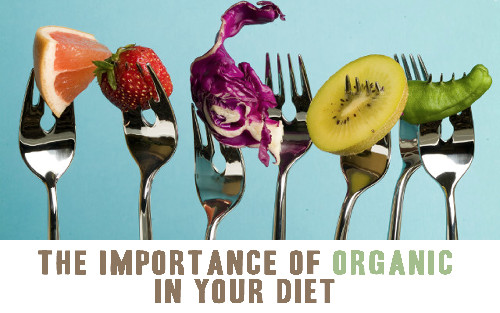“Don’t eat anything your great-grandmother wouldn’t recognize as food. Don’t eat anything with more than five ingredients, or ingredients you can’t pronounce.” ~ Michael Pollan
Lots of controversy over the benefits (or lack there of) of eating organic foods has arisen lately. The organic guys want you to see their product as a beacon of hope in an otherwise bleak landscape of over processed, chemical laden, nutrient deficient produce. The commercial backers state that their product is nutritionally equivalent and costs less to the consumer, therefor providing a great service. I’m here to give my two cents in hopes to make your decision a little easier in this confusing land we call the supermarket.
First of all, no matter what you choose, eating fruits and vegetables is better than not eating them. No matter what I say in the latter portion of this writing, eat your veggies! The benefits to your health outweigh the obvious deficiencies and accompanying diseases that come with low fruit and vegetable consumption.
That was the easy part, but unfortunately this is where I tell you what you probably already know. Eating the organic product is a much healthier choice, plain an simple. Our commercial produce industry has come a long way from the traditional family farms of a century ago. I won’t get into the politics of agro-business now, but lets just say back then about 40% of Americans lived on farms that fed our population. Today the number of family farmers make up just 2% of us. That’s not to say that we are growing less, not by any means. We over produce every year, and have to try to find places to put that food. What I’m saying is that commercial giants (not naming names Monsanto) dominate the industry and force more and more farmers to close up shop every day. The point behind this story is to explain that when giant companies take over an industry like this, the bottom line is profits. When the bottom line is profits, the quality of the product tends to suffer. The land the food is grown on used to be farmed for one growing season, and then left alone to let it recover. Today the land needs to produce as much as possible (to ensure profits meet projections), so it gets stripped of the vital nutrients needed to grow anything at all, let alone produce a healthy plant. So, what do they do? They pump massive amounts of petrochemical fertilizer, hormones, pesticides, antibiotics, and other unpleasant things into the fields and the plants themselves. Then, as if the produce hasn’t been through enough, it is harvested way before it is ripe, and ripened by gassing it with ethylene. After a few weeks or months of storage, the “fresh produce” shows up in your local store for sale. Remarkably, the fruits and veggies do contain the vitamins, minerals, and other phytochemicals we so dearly need in our diet, just at markedly lower levels. The other downside is that the chemicals I mentioned earlier remain a part of the produce, and end up in our bellies. These chemicals are often highly toxic, and where does our body like to store toxins? In our fat. What is our brain made out of? It’s 60% fat. Do we want these toxins stored in our brain? I think not.
So, organics foods to the rescue then? Well yes, but there are a few things to look out for. USDA regulations allow 5% of the ingredients to be non-organic substances. That may not seem like much, but 5% can make a big difference in the nutritional quality of your food. Chemicals can disrupt a number of functions that your body must perform in order to thrive. The big organic companies are a great alternative to the conventional commercially grown produce, but they are far from perfect. The majority of organic produce we find in our local supermarket is grown on massive superfarms that treat the land much like the conventional guys do. The soil is over farmed and produce is picked early, and on many of the farms, they use fertilizers and pesticides that are mostly natural and aren’t nearly as hazardous but wouldn’t be welcome in most peoples food if they had a choice. I won’t go into the detail here, but corporations like WalMart have made large investments in organic produce, as it is big business and looks like it will only be getting bigger. Profits come before anything else in big business and, as I mentioned before, quality tends to suffer when this is the way our food is grown.





